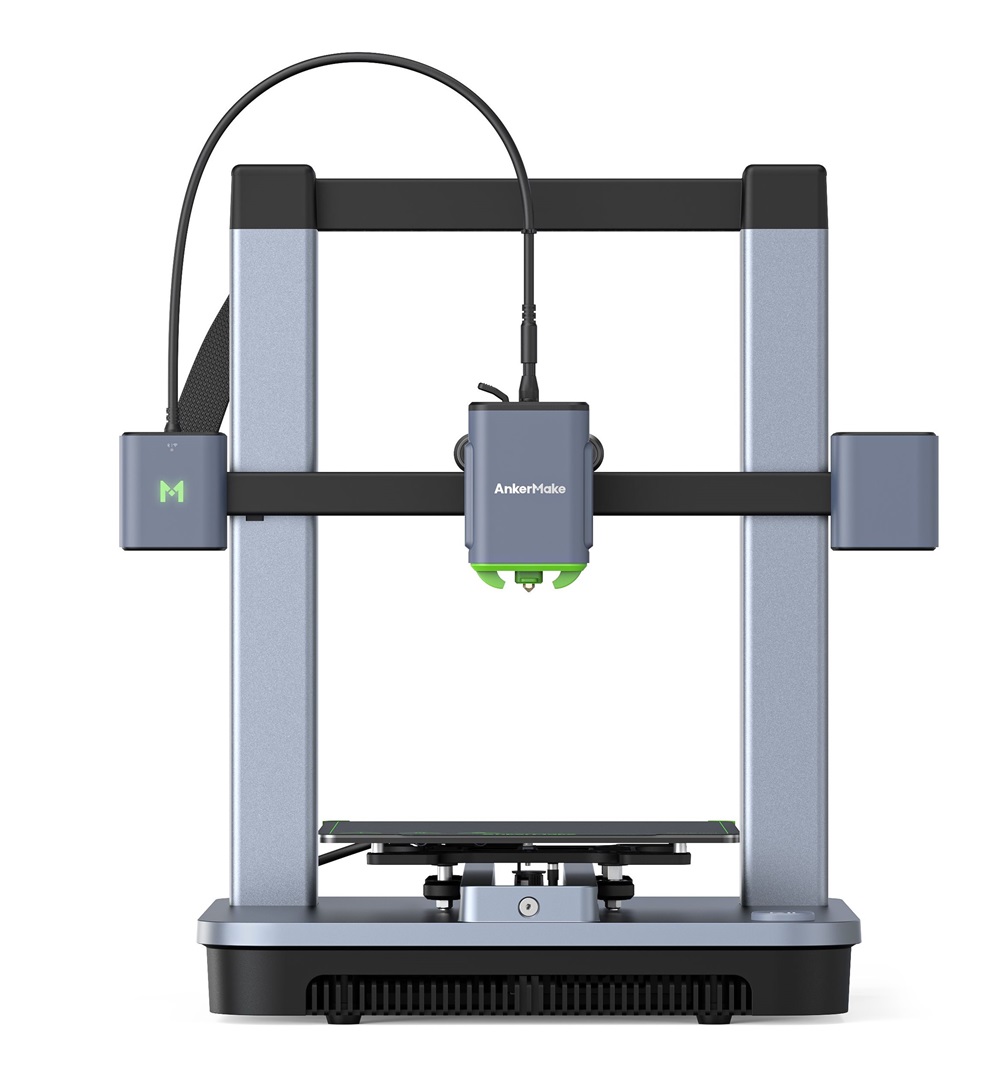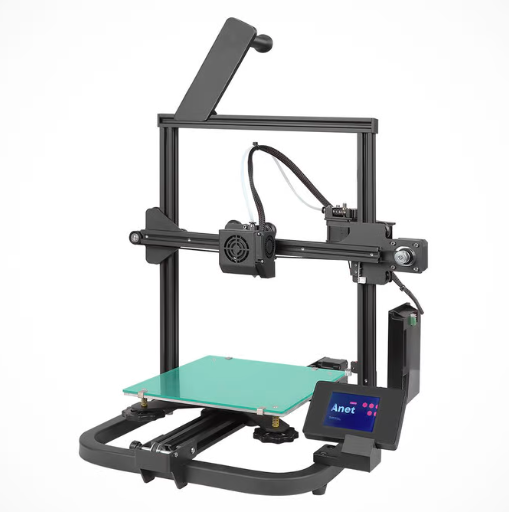Compare M5C vs A8 V2
Comparison between the best 3D printers
Choose the best 3D printer at the best price. The cheapest 3D printers are here.
Buy a 3D printer here with 3D Fila.
 |
 |
|
| Model | M5C[BUY M5C] |
A8 V2 |
| Printing Material | Filament | Filament |
| Buy Filament for AnkerMake M5C | Buy Filament forAnet A8 V2 | |
| Estimated price | $399,00 | $129,00 |
| Manufacturer | AnkerMake | Anet |
| Release Year | 2023 | 2021 |
| Print Volume [mm] | 220x220x250 | 220x220x250 |
| Printer Size [mm] | 466x374x480 | 428x441x486 |
| Weight [kg] | 9,6 | 6,2 |
| Power Loss Recovery | YES | NO |
| Enclosed printer | NO | NO |
| Bed Leveling | Automatic | Manual |
| Filament End Sensor | YES | NO |
| Bed type | Heated | |
| Power supply system | Direct Drive | Bowden |
| Standard nozzle | 0,4 | 0,4 |
| Maximum Nozzle Temperature [°C] | 300 | 230 |
| Maximum Bed Temperature [°C] | 100 | |
| Maximum printing speed [mm/s] | 500 | 150 |
| Filament holder | YES | YES |
| Camera for supervision | NO | NO |
| Recommended filaments | PLA, PETG, TPU, ABS, PA, PLA-CF, PETG-CF, PA-CF | PLA |
| Recommended slicers | AnkerMake Studio (macOS, Windows), Simplify3D, Ultimaker Cura, PrusaSlicer | Cura, Simplify, Slic3r, IdeaMaker |
| Maximum Resolution [mm] | 0,1 | 0,1 |
| Processor | ||
| Display | Display touchscreen 2,8'' | |
| Power Supply | 350 W | 110/220V / 250W |
| Connectivity | Wi-Fi, USB-C, Bluetooth | SD / USB |
| Operating systems | Windows, Linux e Macbook | Windows, Mac, Linux |
| Date of registration in the system | 2024-09-11 | 2022-11-10 |
| Release date | 2023 | 2021 |
| Extra features | The AnkerMake M5 printer stands out for its impressive print speed, reaching up to 500mm/s. It features AI print monitoring, an integrated camera for creating timelapses, auto-leveling bed with pressure sensor, direct extruder, flexible PEI-coated build plate, and Wi-Fi and USB-C connectivity. Assembly is quick and easy, and the printer is designed to deliver high print quality and ease of use. | The Anet A8 V2 is a Cartesian-XZ type 3D printer with a build volume of 220 x 220 x 250 mm, Ender 3 design and V-slot assembly. It has a 32-bit motherboard and touchscreen interface, promising ease of use. It uses open source firmware and has thermal failure protection. It stands out for its cable organization and the absence of a heated bed, focusing on energy savings and PLA printing. It comes with an external power adapter, aiming at greater safety, especially for beginners and educational use. |
| Support for multiple colors and materials (AMS and CFS) | NO | NO |
Notes * |
||
| Cost-benefit | 7 / 10 | 6 / 10 |
| Hardware | 2.8 / 10 | 0.5 / 10 |
| Tela | . | . |
| Print volume | 3 / 10 | 3 / 10 |
| Performance | 4 / 10 | 1 / 10 |
| [BUY M5C] |
Conclusion |
| In comparing the AnkerMake M5C and the Anet A8 V2 3D printers, it is clear that the M5C offers a range of superior features that cater to both advanced users and those looking for ease of use. With a significantly faster maximum printing speed, automatic bed leveling, and advanced sensors for filament monitoring, the M5C is designed for efficiency and high-quality output, making it suitable for a variety of filament types, including more complex materials. Its robust build and connectivity options provide flexibility for modern users who may wish to integrate their 3D printing with different platforms. On the other hand, the Anet A8 V2, while being more budget-friendly, primarily caters to beginners or those focused on basic PLA printing. It features a more manual approach to bed leveling and lacks several conveniences such as power loss recovery and filament sensors, which could pose challenges for users who do not have prior experience with 3D printing. However, its straightforward design may appeal to those who appreciate simplicity and energy efficiency. Ultimately, for individuals or businesses seeking a more advanced 3D printing experience with extensive capabilities and features, the AnkerMake M5C represents a worthwhile investment. Conversely, for hobbyists or beginners working on a limited budget, the Anet A8 V2 can serve as a functional entry point into the world of 3D printing. The choice between the two will depend on the user’s specific needs, budget, and intended use. |

